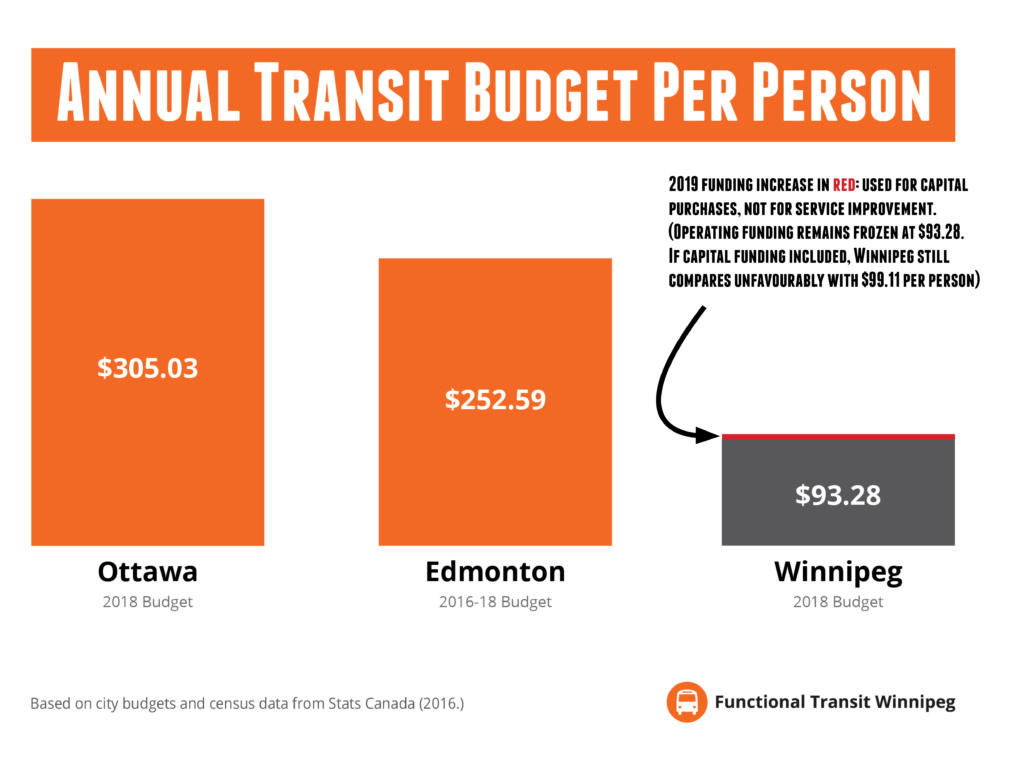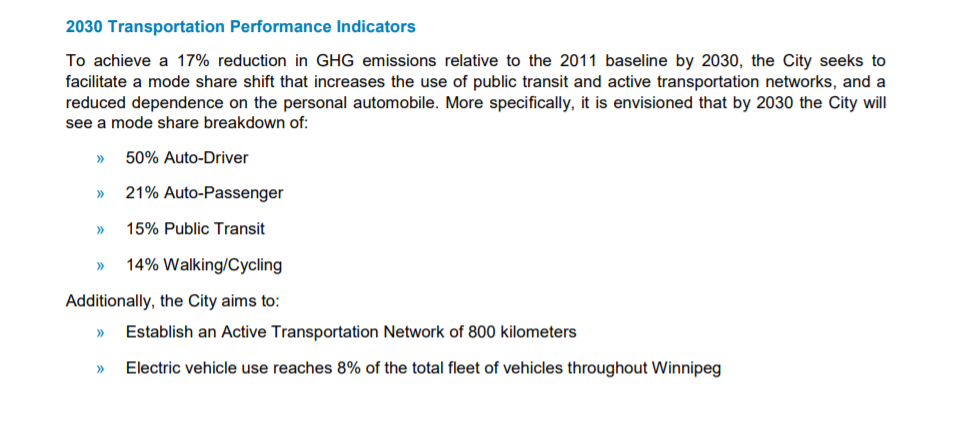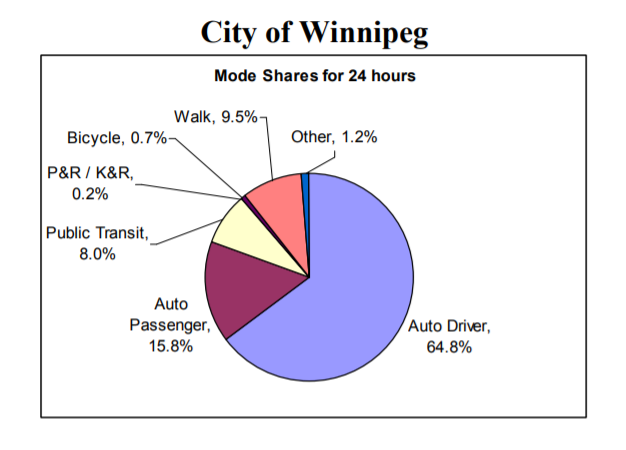This speech was originally intended to be delivered at the Executive Policy Committee meeting on March 13, 2019 with regard to the 2019 Operating Budget. Joseph Kornelsen was unable to deliver the speech because he was welcoming his first child into the world.
My name is Joseph Kornelsen and I’m the chair of Functional Transit Winnipeg. I’m here to speak about the 2019 operating budget and specifically public transit funding.
In this year’s budget, this council is ignoring its own consultation and it is neglecting its basic responsibility to address climate change by not increasing funding for operating our transit service and instead putting all new municipal funding to capital projects while maintaining status quo service levels.
How is it that in the so-called “Year of Transit” we could have a service freeze in the budget?
This year, public transit was ranked as Winnipeggers’ top priority in the budget consultation. Yet in this budget, funding for service is being reduced. Sure, there is some capital money for bus shelters and shelters are nice, but that is not what riders have been calling for. We need service improvement. Members of FTW have stood here at every budget for the last five years and said it over and over again: we need more service. We need more service for existing riders and we need more service to grow ridership in the city.
The truth is, cars use far more energy to move people than is needed, they cost us far more than makes any sense, most people actually don’t like driving all that much and we have a serious climate crisis that we all here know about and I should hope all understand the full consequences of.
While the city may want to say that the problem with transit funding originates with the province, that is untrue. We have shown everyone on this council the operating funding amounts in Edmonton and Ottawa. Their municipal contributions to transit dwarf ours. On their own, before any help from their respective provinces, Edmonton and Ottawa contribute three times as much per capita to operating their transit networks than we do.

Why do we need to fund transit? Well, one good reason is the fact that this council has just admitted it can’t afford its road maintenance this year. If we can’t afford our roads, we need to be finding ways to move more people using less roads and we do that with public transit. But there’s a much more important reason. A reason the city has already acknowledged with it’s Climate Action Plan.
A necessary way to address climate change is to boost transit ridership by funding service. That’s the case whether we electrify the fleet or not.
According to your Climate Action Plan passed in 2018, we have to reduce our carbon emissions substantially and quickly. By 2030 we have to cut emissions by 1/3 and by 2050 we have to cut them by 80%. With every passing year the actions needed to address climate change become more difficult to implement and wider in their scale.

Source: Winnipeg Climate Action Plan, page 21

Believe it or not, I view myself as a bit of a pragmatist. I can understand that it can be difficult to address climate change from the perspective of a politician. People are often uncomfortable with change and I believe politicians are keenly aware of their constituents’ concerns about change. But that is precisely why I am so shocked that you won’t take the opportunity to begin the implementation of your climate plan in a year that your budget consultation gives you the mandate to improve transit.
In order to meet the climate change objectives laid out in the city’s plan, personal automobile trips have to be reduced to 50% of all trips by 2030 and transit trips have to rise from 8% (the proportion of trips made by transit according to the Winnipeg Area Transportation Survey) to 15%. That means you have to increase ridership by 5.88% each year for the next ten years. You need to generate 2,800,000 more riders this year.
And if you aren’t increasing ridership this year, you will have to make up for it by increasing ridership at an even faster rate beginning next year – 6.49% annually from 2020 to 2030.
You must know your climate plan is not optional. You actually have to increase the number of rides by 5.88%. I’ll spare the rhetorical question asking this council how the budget as it currently stands will meet this goal and simply tell you it won’t.
So here is the specific requirement for your transit budget this year: you need to consult your transit department and ask what level of service will increase ridership by 2.8 million this year and increase your contribution to fund that much service. And you have to do that this year, because you have to increase ridership by another 5.88% next year and you don’t want to fall behind. Again, this is the city’s goal, laid out in your climate plan.
So then, now that we know you have to address climate change and that Winnipeggers have given you a mandate to do so, let’s talk about why you’re going to want to do it.
You want to do this because nobody remembers leaders who maintained the status quo. And why would we? It’s basically a tautology. Unmemorable leaders didn’t do anything memorable, so why remember them?
What do memorable leaders look like?
We have had such leaders in Manitoba. Mayor Norrie led the redevelopment of The Forks – Winnipeg’s top tourist destination. Duff Roblin built the Floodway – Duff’s Ditch, Glen Murray spearheaded the Bell MTS Centre Project.
These were visionary projects. They looked to the future. Each of these projects required upfront investment and confidence that the people of Winnipeg would embrace them. Today the Forks is so popular it is the top tourist destination in Winnipeg and, perhaps more importantly, it generates enough revenue to be self-sustaining. The Floodway has, since 1968, prevented 10s of billions of dollars in flood damage to Winnipeg. And of course, the MTS Centre now hosts the returned Winnipeg Jets.
For any project, there will be haters. Remember the million dollar toilet talking point when we were debating building Esplanade Riel? That didn’t stop it from becoming the single most popular Winnipeg postcard image and a source of identity for many of our citizens.
You have an opportunity to be remembered as visionaries.
Since you already have an obligation to address our carbon emissions, this council can still be remembered for initiating Winnipeg’s transition into the low carbon future. And you can do that with transit. Because your own plan says you have to. And you even have an ace in the hole: your consultation said Winnipeggers want transit.
Functional Transit has spoken to Mayor Bowman and most members of this committee. We have repeatedly explained that service frequency has been shown to have the biggest impact on ridership per dollar spent. This council has had ample time to review our sources and consult the literature on your own. So you must be aware by now that we are communicating accurate information.
People actually do switch to transit. I love driving, but I also love transit – when it works. I’m not a transit rider who thinks my way of life is morally superior. I’m just someone who likes to drive but wants my city to be more affordable and easier to get around without burning fossil fuels.
You have a mandate from your constituents and you have a climate crisis you are obligated to address. You must increase funding for transit service.
You have an opportunity to be visionary
In 1938, British Prime Minister Neville Chamberlain arrived back in London from Munich declaring he had secured “peace in our time.” We now know that Chamberlain had thoroughly failed to grasp the threat posed by the Nazis. For ignoring what was already clear by 1938, Chamberlain is remembered as a naïve failure. It only became more clear how disastrously wrong he was with time.
Don’t be the Neville Chamberlains of our time.
As climate change increasingly dominates the conversation and it increasingly becomes apparent to people through their insurance bills, through rising food bills, through more substantial coastal flooding, folks will look to the past increasingly with a lens informed by the true human cost of climate change and that will be how your legacy will be interpreted.
In this budget, fund transit service. You owe it to Winnipeggers, to the environment and to yourselves.
Thank you



